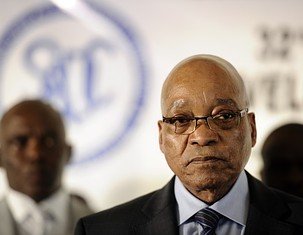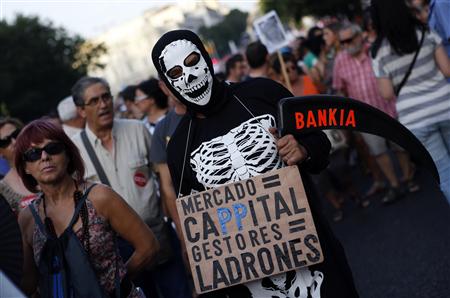Home Tags Posts tagged with "miners"
miners
At least 27 Afghan miners have been killed in a collapse after being trapped underground in the northern province of Samangan, officials have confirmed.
Provincial governor’s spokesman Mohammad Seddiq Azizi said that the men had been working at the Abkhorak coal mine when part of it collapsed.
Four members of the rescue teams were badly injured.
An official said the rescue teams did not have the appropriate equipment. Mining is a state-controlled industry.

At least 27 Afghan miners have been killed in a collapse after being trapped underground in the northern province of Samangan
It is feared that at least 13 other miners could still be trapped in the mine 135 miles north of the capital, Kabul.
The collapse is the latest accident to hit Afghanistan’s mining industry.
In December, 11 miners were reported to have been killed in a similar incident in the northern province of Baghlan.
The country is known to have vast reserves of oil, gas, copper, cobalt, gold and lithium.
Afghanistan is also known to have a wider array of mineral resources; in 2010, the ministry of mines claimed its reserves were worth nearly $1 trillion.
Botnet miners, or cyber-thieves, are attempting to cash in on the rising value of the bitcoin virtual currency.
Bitcoins have almost tripled in value in a month. In late February one bitcoin was worth $33 but now each one sells for about $90.
Thieves who run networks of hijacked PCs are increasingly using these machines to create or “mine” the coins.
However, bitcoin miners say thieves will struggle to keep up, as coin-generating technology becomes more sophisticated.

Botnet miners, or cyber-thieves, are attempting to cash in on the rising value of the bitcoin virtual currency
As a virtual currency, bitcoins depend on a wide network of closely connected computers to log who holds the coins and where they are spent.
That network also shares information about who is “mining” the coins.
Mining involves solving a hard mathematical problem and miners typically use large numbers of computers to speed up the number crunching involved.
“Botnet mining is fundamentally theft of private property, illegal and unethical,” said Jeff Garzik, a bitcoin developer, adding that bitcoin miners had battled botnets for years, seeing them as a “cost and a burden” they just had to deal with.
Many cyber-thieves who control botnets, large networks of home PCs compromised with a virus, were using them as a dedicated mining pool in a bid to generate bitcoins for themselves, said Derek Manky, senior security strategist at Fortinet.
The operators of one of the biggest current botnets, known as ZeroAccess, had recently ramped up their efforts to use machines they control to mine bitcoins, he said, adding that millions of infected PCs were unwittingly enrolled in the criminal network.
“ZeroAccess has employed an affiliate model,” he said.
“They pay other people to install malware for them.”
The operators of ZeroAccess were making so much money that they were paying high prices for each infection. Current rates ran at about $100 for every 1,000 infections, said Derek Manky.
As well as mining bitcoins, PCs enrolled in ZeroAccess were also being used to poison search results – to cause users to unwittingly click on booby-trapped web pages – or fraudulently click on adverts to generate revenue.
“ZeroAccess has been extremely profitable,” said Derek Manky.
The wider bitcoin community was aware of the efforts botnet owners were making to produce their own cash, said Derek Manky.
“They try to detect and remove these transactions but it’s a bit of a cat and mouse game,” he said.
“The operators of ZeroAccess know about that and just change their tactics.”
However, said Jeff Garzik, criminal participation in bitcoin mining was likely to get much less profitable as professional miners turned away from using desktop PCs to generate the coins.
Increasingly, he said, professional miners were using custom-made chips, called Asics (Application-Specific Integrated Circuits), to mine because such processors worked faster.
“It is theorized that the current shift in bitcoin mining to <<Asic>> miners – the fastest and most advanced generation – will simply make it unprofitable for botnet miners,” said Jeff Garzik.
Vitalik Buterin, technical editor at Bitcoin Magazine, said the rise of Asic mining meant cyber-thieves would soon be pushed out.
Currently only about one-third of all professional miners were using Asics, but as that proportion grew, the number of bitcoins that could be generated with a botnet would shrink, said Vitalik Buterin.
“The fact that botnets are (somewhat) viable now is basically an aberration resulting from the massive price increase that has not yet been matched by increased mining activity,” he said.
“Once Bitcoin stabilizes again the botnets will rapidly crawl back into the shadows.”
[youtube 7fvSYT7vhQY]
South African President Jacob Zuma has announced an inquiry into violence at Lonmin Marikana platinum mine, calling the deaths there “tragic”.
Thirty-four people were killed when police opened fire on striking platinum miners on Thursday.
At least 78 people were injured in the confrontation.
President Jacob Zuma said he was “saddened and dismayed” at the “shocking” events and offered sincere condolences to all families who had lost loved ones.
He said: “We have to uncover the truth about what happened here. I have decided to institute a commission of inquiry. It will enable us to get to the real cause of the incident and derive the necessary lessons.”
The president said his thoughts were with the families of those who had lost their lives but also with the police “who have to intervene in difficult situations”.

President Jacob Zuma has announced an inquiry into violence at Lonmin Marikana platinum mine, calling the deaths there "tragic"
Jacob Zuma added: “Today is not an occasion for blame, finger-pointing or recrimination. Today challenges us to restore calm and to share the pain of the affected families and communities. Today is about reminding ourselves of our responsibility as citizens.”
The president said it was a “cornerstone of hard-won democracy” to allow for peaceful protests, but added that today was “a day for us to mourn together as a nation – a day to start rebuilding and healing”.
Jacob Zuma had cut short his attendance at a regional summit in Mozambique to deal with the crisis.
He will later visit some of injured being treated in hospital.
Some of the strikers’ wives gathered near the mine on Friday, chanting anti-police songs and demanding to know what had happened to their husbands.
“Police, stop shooting our husbands and sons,” read a banner carried by the women, according to the Associated Press news agency.
A strike at the mine began a week ago and had claimed the lives of 10 people, including two police officers, before the incident on Thursday.
Police were then sent to break up 3,000 miners – some armed with clubs and machetes – who had gathered on a hillside overlooking Marikana to call for a pay rise of about $1,000 a month.
The circumstances that led police to open fire remain unclear, but reports from eyewitnesses suggest the shooting took place after a group of demonstrators rushed at a line of police officers.
Police, armed with automatic rifles and pistols, fired dozens of shots, witnesses said.
Police chief Riah Phiyega said officers “were forced to use maximum force to defend themselves”.
She said 259 people had been arrested on various charges.
The Association of Mineworkers and Construction Union (AMCU) accused the police of carrying out a massacre.
“There was no need whatsoever for these people to be killed like that,” General Secretary Jeffrey Mphahlele told Reuters news agency.
The miners, who are currently earning between 4,000 and 5,000 rand ($484-$605), say they want their salary increased to 12,500 rand ($1,512).
South Africa is the largest platinum producer in the world and the dispute has already affected production.
Lonmin, the world’s third-largest platinum producer, has encountered similar labor disputes at the Marikana mine. In May 2011, the company sacked some 9,000 employees after a strike.
Police in Spain have fired rubber bullets to clear demonstrators in Madrid as a day of nationwide protests against spending cuts ended in unrest.
Protesters set alight rubbish bins as riot police charged them in the city centre, near the parliament building.
Seven people were arrested and at least six injured, officials said.
Earlier, tens of thousands of people held largely peaceful protests across Spain against the latest government austerity measures.
Public sector workers crowded the streets of Madrid, Barcelona and several other cities, chanting slogans against government “robbery”.

Tens of thousands of people held largely peaceful protests across Spain against the latest government austerity measures (Photo: Reuters)
Among those protesting were firefighters and police officers, as well as health and education workers.
“We have lived through bad times, but this takes the biscuit,” fireman Francisco Vaquero, 58, told the Reuters news agency.
The new 65 billion-euro ($80 billion) package of public sector wage cuts and tax rises were announced last week by Prime Minister Mariano Rajoy.
He said it was part of a deal with eurozone leaders to help rescue Spain’s troubled banks. Parliament ratified the measures on Thursday.
Earlier in the day, Germany’s parliament voted in favor of the 100 billion-euro bailout for Spain’s debt-laden banking sector.
Government austerity measures aimed at cutting Spain’s large deficit have prompted frequent protests, including one by miners against subsidy cuts last week.
At a debt auction on Thursday, Spain managed to raise 2.98 billion euros on the financial markets, but at the cost of sharply higher interest rates compared to an auction last month.




